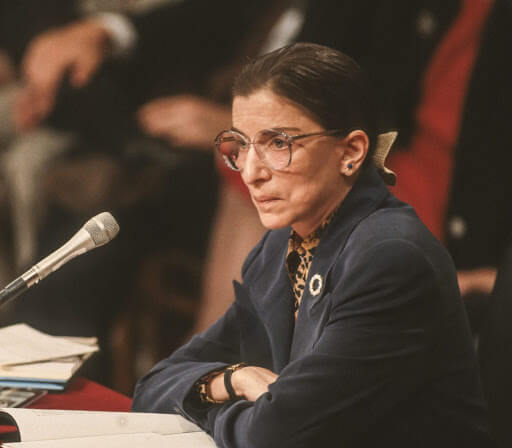Prepared by Cislo & Thomas LLP Attorney Mark D. Nielsen, Ph.D.

In IP Takeaways’ final installment of the legacy of Ruth Bader Ginsburg’s contributions to IP law, we note that copyright law seems to be an area that Justice Ginsburg enjoyed, as she wrote a number of opinions in copyright cases, including New York Times v. Tasini (newspaper could not license articles to databases such as Lexis where the authors did not grant such rights to the newspaper); Eldred v. Ashcroft (constitutionality of Sonny Bono Copyright Term Extension Act upheld); MGM v. Grokster (peer-to-peer technology to permit sharing of copyrighted materials supports inducement of copyright infringement claims – Justice Ginsburg wrote concurring opinion noting that evidence supported contributory infringement as well as induced infringement); Reed Elsevier v. Muchnick (registration pre-requisite to filing copyright infringement claim, but lack of registration does not deprive federal court of subject matter jurisdiction – Justice Ginsburg wrote concurring opinion to note tension in the holding); Petrella v. MGM (Justice Ginsburg wrote majority opinion that laches is not available as a defense in copyright infringement cases); Star Athletica v. Varsity Brands (defined separability test for protection of useful articles by copyright – Justice Ginsburg concurred to note that the majority did not need to go as far as it did in deciding case because the copyright applications at issue were not for useful articles, but were applied to useful articles); Fourth Estate v. Wall-Street.com (Justice Ginsburg authored a unanimous majority opinion that an issued registration or a refusal to register is required in order to institute a lawsuit for copyright infringement).
Justice Ginsburg also joined in other important decisions in copyright cases decided by the Court during her time, including: Fantasy v. Fogerty (standard for attorneys’ fees awards in copyright cases); Campbell v. Acuff-Rose Music (parody as a fair use defense to copyright infringement).
In what appears to be her last opinion in a copyright case, Justice Ginsburg authored a dissenting opinion in Georgia v. Publicresource.org. The issue in the case was whether annotations and comments on legislative materials may be copyrighted. The majority said no because the annotations and comments to the laws were prepared by legislators in furtherance of their legislative duties. Justice Ginsburg dissented and believed those writing should be copyrightable because, among other things, annotations and comments were not done in furtherance of legislative duties, and are prepared for edification of the public.
In summary, while intellectual property cases before the Supreme Court are not the typical 5-4 decisions that are common on more social issues, it is undeniable that Ruth Bader Ginsburg was heavily involved in, and in some cases, wrote opinions in, patent, trademark, and copyright cases that have shaped the laws that we, as IP lawyers, use, consider, and apply on a daily basis. What many people, perhaps even some lawyers, do not realize is that Supreme Court justices work really hard. It is not simply a matter of receiving a few briefs, reviewing them, sitting in on an argument, and possibly writing an opinion. There is an incredible amount of serious review, analysis, thought, discussion, and consideration before an oral argument at the Supreme Court takes place, and then a substantial amount of further discussion, analysis, writing, re-writing, reviewing, etc. of the possible opinion(s). All of the Supreme Court justices, including Justice Ginsburg, work tirelessly to deliver the opinions and orders that they do. While it may not be what she is best known for, her contributions to IP law are significant and noteworthy, and were the product of her tireless efforts (even as she battled a host of health issues). Thus, regardless of ideological persuasion, all of us in the IP community should give a pronounced and very respectful “tip of the cap” to Justice Ruth Bader Ginsburg.
Photo Credit: http://askcarterlaw.com/the-notorious-rbg-ginsburgs-impact-on-copyright-and-the-entertainment-industry/



